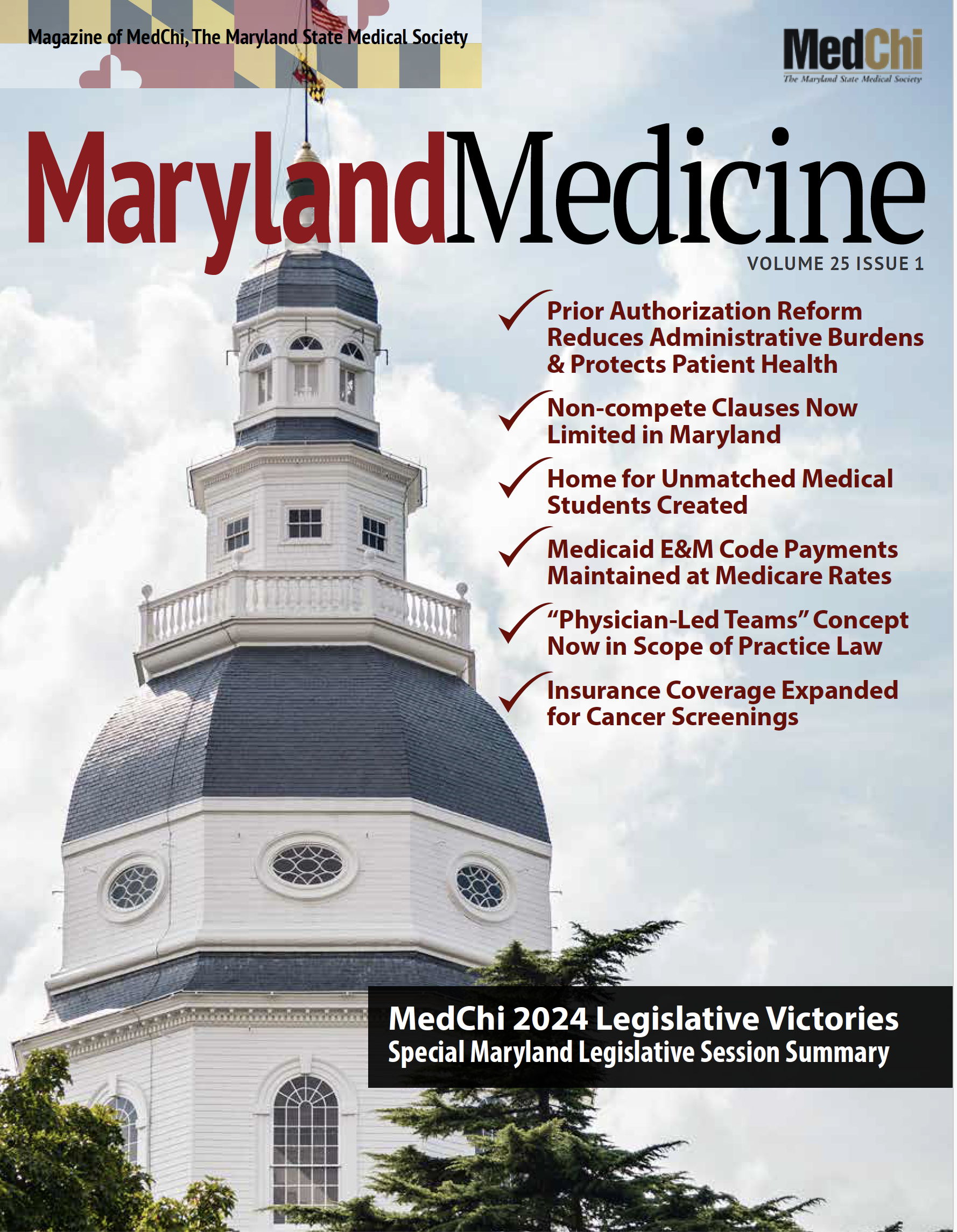Previously published in Maryland Medicine, Vol 25 Issue 1 – After almost two years of advocacy and negotiations, Senate Bill 791/House Bill 932: Health Insurance – Utilization Review – Revisions passed the General Assembly. Passage of this bill represents a major policy win for MedChi, and the patients cared for by our members. With this legislation, and combined with current statutory protections, Maryland provides some of the strongest protections in the country to patients and health care practitioners. Senate Bill 791/House Bill 932 reduces and streamlines the volume of prior authorization requirements by:
• Prohibiting a carrier from issuing a denial of care when a patient requests a medication renewal for a prescription that is used to treat a mental health disorder or that is an immune globulin if the insurer previously approved the drug, the patient has been successfully treated on the prescription drug, and the prescriber attests that the patient continues to need the drug.
• Exempting prescription drugs from requiring a prior authorization for dosage changes provided that the change is consistent with federal U.S. Food and Drug Administration labeled dosages and is not an opioid.** Maryland law already prohibits prior authorization for a prescription drug when used for treatment of an opioid use disorder and that contains methadone, buprenorphine, or naltrexone.
• Requiring a carrier to allow patients who changes health insurance carriers to remain on the patient’s medication for a period of the lesser of ninety days or the course of treatment during which time the new carrier can perform its own prior authorization review.
• Requiring a carrier to provide sixty days’ notice rather than the current thirty days’ notice when it implements a new prior authorization requirement.
• Requiring a carrier, when approving a prior authorization request, to approve a course of treatment of a non-medication health care service for as long as medically reasonable and necessary to avoid disruptions in care in accordance with applicable coverage criteria, the patient’s medical history, and the treating provider’s recommendation (similar to the final Medicare Advantage rule).
Senate Bill 791/House Bill 932 also increases transparency and mandates enhanced and comprehensive communication by:
• Ensuring that the need for an expedited review after a denial is determined by the health care provider and/or the patient or the patient’s representative and not the carrier (i.e., expedited reviews must be conducted within twenty-four hours).
• Requiring that any communication from the carrier where there is a denial of health care services state in detail the factual bases for the decision, including explaining the reasoning why the health care provider’s request was not medically necessary and why it did not meet the criteria and standards used in conducting the review, which must be specifically referenced and not simply referred to “as part of the member’s policy or plan document.”
• Requiring carriers to have a dedicated call line for denials or a dedicated and monitored email for scheduling calls so that health care providers can discuss the decision rather than having to go through the general customer call line.
• Requiring that, if any additional information is needed to make the determination, the carrier must provide the specific information needed, including any lab or diagnostic test or other medical information, along with the criteria and standard used to support the need for the additional information.

SMWK is a leading law and lobbying firm that represents association, corporate, and non-profit clients before Maryland legislative, executive, and regulatory bodies. Our team has a wealth of collective experience advocating on behalf of our clients before Maryland government. SMWK was founded by Joseph A. Schwartz, III in 1978 and is located at 20 West Street in historic downtown Annapolis, just steps from the Maryland State House.

